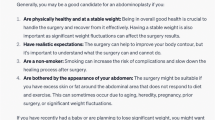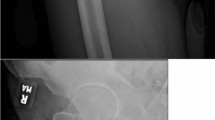Abstract
Background
The COVID-19 pandemic has affected medical education, constraining clinical exposure and posing unprecedented challenges for students and junior doctors. This research explores the potential of artificial intelligence (AI), specifically the ChatGPT-4 language model, to transform medical education and address the deficiencies in clinical exposure during the post-pandemic era.
Research Questions/Purpose
What is the potential of AI large language models in delivering safe and coherent medical advice to junior doctors for clinical orthopaedic scenarios?
Patients and Methods
A series of diverse orthopaedic questions was presented to ChatGPT-4, from general medicine to highly specialised fields. The questions were based on a variety of common orthopaedic presentations including neck of femur fracture, compartment syndrome, pulmonary embolism, and a motor vehicle accident. A validated questionnaire (Likert Scale) was implemented to evaluate the answers produced by ChatGPT-4.
Results
Our results indicate that ChatGPT-4 exhibits exceptional proficiency in delivering accurate and coherent medical advice. Its intuitive interface, accessibility, and sophisticated algorithm render it an ideal supplementary tool for medical students and junior doctors. Despite certain limitations, such as its inability to fully address highly specialised areas, this study highlights the potential of AI and ChatGPT-4 to revolutionise medical education and fill the clinical exposure void generated by the pandemic. Future research should concentrate on the practical application of ChatGPT-4 in real-world medical environments and its integration with other emerging technologies to optimise its influence on the education and training of healthcare professionals.
Conclusions
ChatGPT-4’s integration into orthopaedic education and practice can mitigate pandemic-related experience gaps, promoting self-directed, personalised learning and decision-making support for interns and residents. Future advancements may address limitations to enhance healthcare professionals' learning and expertise.
Level of Evidence
Level III evidence—observational study.













Similar content being viewed by others
Dta availability
Data for this study is freely available in the appendix/figures. No additional data was used.
References
Seifman, M. A., Fuzzard, S. K., To, H., & Nestel, D. (2022). COVID-19 impact on junior doctor education and training: A scoping review. Postgraduate Medical Journal, 98(1160), 466–476.
Dimitriu, M. C., Pantea-Stoian, A., Smaranda, A. C., Nica, A. A., Carap, A. C., Constantin, V. D., Davitoiu, A. M., Cirstoveanu, C., Bacalbasa, N., Bratu, O. G., & Jacota-Alexe, F. (2020). Burnout syndrome in Romanian medical residents in time of the COVID-19 pandemic. Medical Hypotheses, 144, 109972.
Kannampallil, T. G., Goss, C. W., Evanoff, B. A., Strickland, J. R., McAlister, R. P., & Duncan, J. (2020). Exposure to COVID-19 patients increases physician trainee stress and burnout. PLoS ONE, 15(8), e0237301.
Xie, Y., Seth, I., Rozen, W. M., & Hunter-Smith, D. J. (2023). Evaluation of the artificial intelligence chatbot on breast reconstruction and its efficacy in surgical research: A case study. Aesthetic Plastic Surgery, 2023, 1–10.
Khan, R. A., Jawaid, M., Khan, A. R., & Sajjad, M. (2023). ChatGPT-Reshaping medical education and clinical management. Pakistan Journal of Medical Sciences, 39(2), 605.
Jeblick, K., Schachtner, B., Dexl, J., Mittermeier, A., Stüber, A. T., Topalis, J., Weber, T., Wesp, P., Sabel, B., Ricke, J., & Ingrisch, M. (2022). ChatGPT makes medicine easy to swallow: An exploratory case study on simplified radiology reports. Preprint arXiv:2212.14882
Kung, T. H., Cheatham, M., Medenilla, A., Sillos, C., De Leon, L., Elepaño, C., Madriaga, M., Aggabao, R., Diaz-Candido, G., Maningo, J., & Tseng, V. (2023). Performance of ChatGPT on USMLE: Potential for AI-assisted medical education using large language models. PLoS Digital Health, 2(2), e0000198.
Gilson, A., Safranek, C., Huang, T., Socrates, V., Chi, L., Taylor, R. A., & Chartash, D. (2022). How does ChatGPT perform on the medical licensing exams? The implications of large language models for medical education and knowledge assessment. medRxiv.
Gao, C. A., Howard, F. M., Markov, N. S., Dyer, E. C., Ramesh, S., Luo, Y., & Pearson, A. T. (2022). Comparing scientific abstracts generated by ChatGPT to original abstracts using an artificial intelligence output detector, plagiarism detector, and blinded human reviewers. bioRxiv, 2022(12), 1.
Anders, B. A. (2023). Why ChatGPT is such a big deal for education. C2C Digital Magazine, 1(18), 4.
Editorials, N. (2023). Tools such as ChatGPT threaten transparent science: Here are our ground rules for their use. Nature, 613, 612.
Seth, I., Rodwell, A., Tso, R., Valles, J., Bulloch, G., & Seth, N. (2023). A conversation with an open artificial intelligence platform on osteoarthritis of the hip and treatment. Journal of Orthopedics and Sports Medicine, 5, 112–120.
Chen, Y., Jensen, S., Albert, L. J., Gupta, S., & Lee, T. (2023). Artificial intelligence (AI) student assistants in the classroom: Designing chatbots to support student success. Information Systems Frontiers, 25(1), 161–182.
Price, W. N. I., & Cohen, I. G. (2019). Privacy in the age of medical big data. Nature Medicine, 25, 37–43.
Blease, C., Kaptchuk, T. J., Bernstein, M. H., Mandl, K. D., Halamka, J. D., & DesRoches, C. M. (2019). Artificial intelligence and the future of primary care: Exploratory qualitative study of UK general practitioners’ views. Journal of Medical Internet Research, 21(3), e12802.
Char, D. S., Shah, N. H., & Magnus, D. (2018). Implementing machine learning in health care—Addressing ethical challenges. New England Journal of Medicine, 378, 981–983.
Antaki, F., Touma, S., Milad, D., El-Khoury, J., & Duval, R. (2023). Evaluating the performance of chatgpt in ophthalmology: An analysis of its successes and shortcomings. medRxiv, 2023(01), 100324.
Funding
No funding was obtained for this research.
Author information
Authors and Affiliations
Corresponding author
Ethics declarations
Conflict of Interest
The authors declare no conflict of interest.
Ethical Standard Statement
This article does not contain any studies with human or animal subjects performed by the any of the authors.
Informed Consent
Due to this study’s design, no institutional ethics was required.
Additional information
Publisher's Note
Springer Nature remains neutral with regard to jurisdictional claims in published maps and institutional affiliations.
Rights and permissions
About this article
Cite this article
Lower, K., Seth, I., Lim, B. et al. ChatGPT-4: Transforming Medical Education and Addressing Clinical Exposure Challenges in the Post-pandemic Era. JOIO 57, 1527–1544 (2023). https://doi.org/10.1007/s43465-023-00967-7
Received:
Accepted:
Published:
Issue Date:
DOI: https://doi.org/10.1007/s43465-023-00967-7




